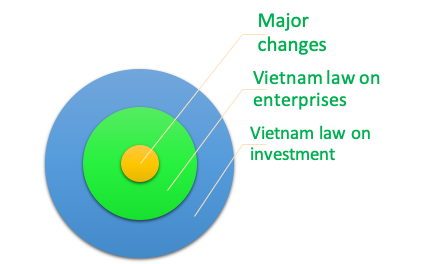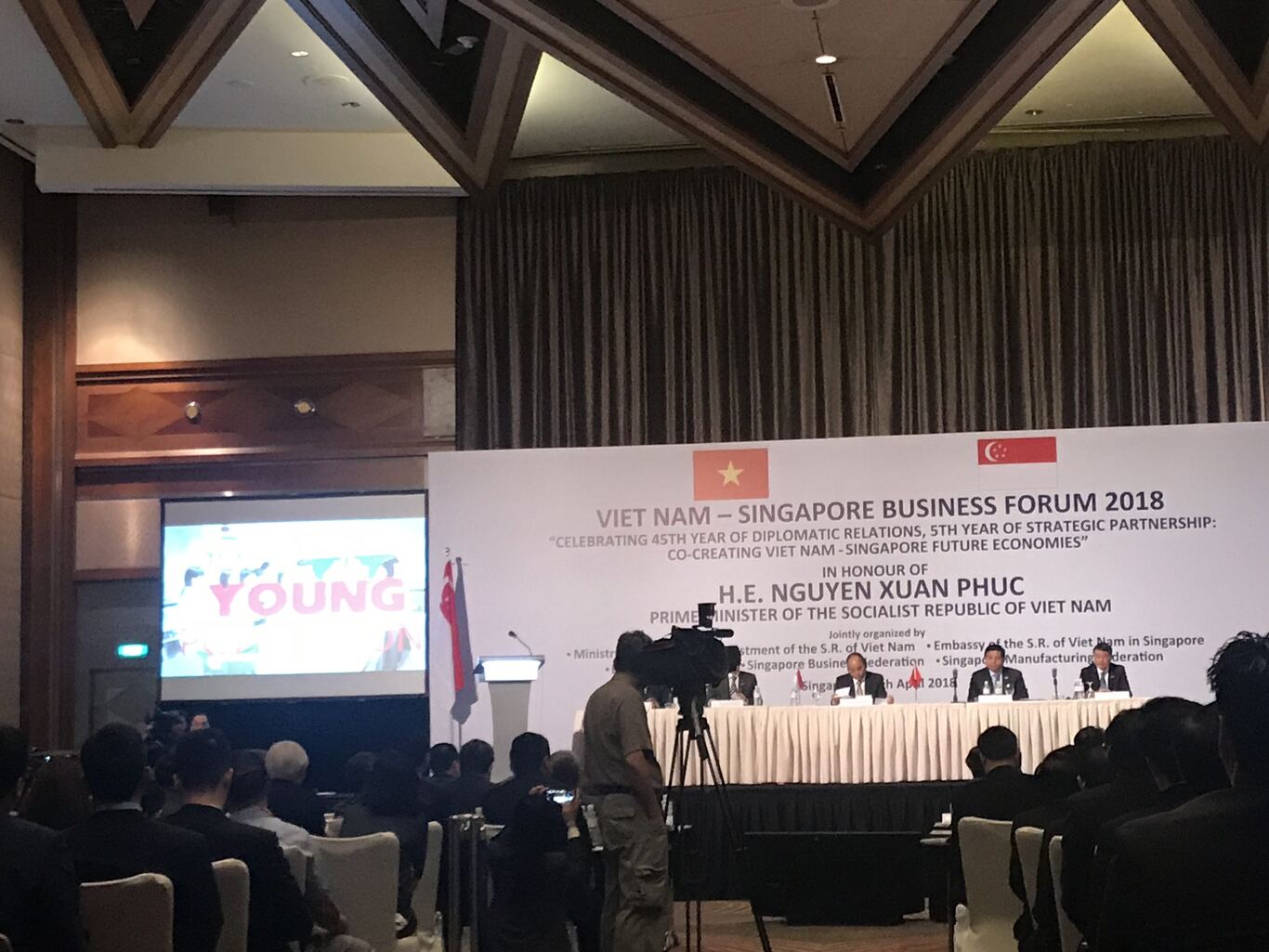On 16-17 June, 2020, the National Assembly has passed the new Law on Enterprises and the Law on Investment. The Article shall highlight major changes of the laws that shall come into force on 1 January, 2021. If you do business in Vietnam, you must aware these changes.
With the increasingly dynamic economic integration in Vietnam, in particular, the two significant FTAs are passed currently, which are CPTPP and EVFTA, have brought many more opportunities to domestic businesses and open many directions of investment for foreign investors into Vietnam. Hence, the amendment of two Laws, which directly regulated these issues, are the Law on Enterprises and the Law on Investment, are very concerned issues of domestic businesses and foreign investors.

Firstly, abolishing the procedure of notifying the seal specimen to the registrar.
According to the regulations of the existing Law on Enterprises, businesses must notify the seal specimen to the business registration agency for publicly posting on the National Enterprise Registration Portal before using it. However, with the amended Law on Enterprises (the amended Law) that have been passed, the majority of Vietnam National Assembly deputies have agreed to abolish the procedure of this notice. Thereby, this may lead to the reduction of a few of cumbersome procedures and the simplification of the operation of the companies with the general aim of creating a more effective business environment.
Secondly, Abolishing the chapter on the type of business household
in terms of business households, in the draft of the new Law on Enterprises, this form is regulated into a chapter in details. However, after consulting with the deputies of the National Assembly, it was agreed to abolish the chapter on the type of business household, as well as remove the regulation on the conversion from form of business household to form of enterprise. Thereby, the National Assembly will draft and enact a separate law regulating this type.
Thirdly, groups of subjects under provision from establishing and managing the business in Vietnam
the amended Law has supplemented one more subject, which is prohibited to establish and manage the business, is organizations that are commercial legal persons prohibited from doing business or operating in certain in order to be suitable with the provisions of the Criminal Code 2015 amended in 2017. Hence, from 1 January, 2021, 07 groups of subjects shall be prohibited from establishing and managing the business in Vietnam.
Fourthly, definition of State Enterprises
one of the important changes is about State Enterprises, the amended Law has had a change on the definition of State Enterprises, which has regulated that State Enterprises include enterprises that the State owns 50% or more of chapter capital or the total number of voting shares, instead of 100% of the charter capital currently. In details, Article 88 of the amended Law has regulated the different levels of holding the chapter capital as follow:
“1. State enterprises are organized and managed under the form of limited liability companies and joint stock companies, including:
- a) Enterprises that the State holds 100% of chapter capital;
- b) Enterprises that the State holds 50% or more of chapter capital or the total number of voting shares, except for enterprises regulated in point a, Clause 1 of this Article;
- Enterprises that the State holds 100% of chapter capital under point a, Clause 1 of this Article include:
- a) A one-member limited liability company in which the State holds 100% of its charter capital, is the parent company of a state economic group, the parent company of a state corporation, the parent company in the group of the parent company – the subsidiary company.
- b) A one-member limited liability company is an independent company that the State holds 100% of its charter capital.
- Enterprises that the State holds 50% or more of chapter capital or the total number of voting shares under point b, Clause 1 of this Article include:
- a) A limited liability company with 2 or more members or a joint stock company in which the State holds 50% or more of charter capital or the total number of voting shares is the parent company of a state economic group, the parent company of a state corporation, the parent company in the group of the parent company – the subsidiary company.
- b) A limited liability company with 2 or more members or a joint stock company is an independent company that the State holds 50% or more of charter capital or the total number of voting shares.

Fifthly, shareholders or groups of shareholders owning 10% or more of common shares
the current Law on Enterprises has regulated that shareholders or groups of shareholders owning 10% or more of common shares are allowed to perform their rights on their shares only when they have owned their shares for a consecutive period of at least 6 months or more. The amended Law has abolished this regulation to protect the rights and interests of such shareholders, because in fact, although many shareholders own the majority of shares of the company, they cannot perform their rights and legitimate interests since not meeting requirements on the term of owning shares.
Last but not least, the amended Law has changed a number of regulations to protect rights and interests of shareholders or groups of shareholders that own the small rate of shares in the company. In details, this Law has decreased the rate of shares for performing a few of rights from 10% to 5%. Therefore, shareholders or groups of shareholders only owning 5% of the total number of common shares can carry out some rights as follow:
“a) To examine and extract the book of minutes and resolutions of the Board of Directors, mid-year and annual financial statements made according to the forms of the Vietnamese accounting system, and reports of the Supervisory Board, contracts, transactions that must be passed by the Board of Directors and other documents except documents related to trade secrets, business secrets of the company;
- b) To request convening of a General Meeting of Shareholders in the case specified in Clause 3 of this Article;
- c) To request the Supervisory Board to inspect each particular issue related to the management and administration of the operation of the company when finding it necessary. The request shall be made in writing, containing full name, permanent residence address, citizenship, serial number of citizen or people’s identity card or passport or another valid personal identification paper, for an individual shareholder; name, permanent residence address, citizenship, serial number of the establishment decision or number of enterprise registration, for an institutional shareholder; number of shares and time of registration of shares of each shareholder, total number of shares of the group of shareholders and the percentage of ownership in the total number of shares of the company; issues to be inspected and purposes of the inspection;
- d) Other rights provided in this Law and the company charter.
This regulation is to protect rights and interests of shareholders or groups of shareholders that own the small rate of shares in the business. Besides, this regulation may be an important basis to attract investing sources into the business.
Above is new points of the amended Law on Enterprises that comes into force on 01 January, 2021 so that readers can see and update information.
***ASL LAW with very experienced business lawyers and consultants shall provide the clients a full legal service with affordable quotation to establishment of a company in Vietnam from the initial step until full functional operation. Accordingly, the business of the clients shall operate in Vietnam legally, efficiently and costly.
*** other related articles***
– How To Open company in Vietnam
– Enquiry: Setting Up New Company in Vietnam
– What Is Advantage Of Opening Representative Office In Vietnam?
– Notes To Company Formation In Vietnam
– What Is Difference Between Subsidiary And FDI Company In Vietnam?
– Fees for forming company in Vietnam and Procedure of company formation in Vietnam
– Legal Inquiry: Open tour company in Vietnam: inbound and outbound license
– How to Open Branch in Vietnam
– How To Establish Representative Office in Vietnam (Establish R.O in Vietnam)?
– How to establish a new company in Vietnam?

 Tiếng Việt
Tiếng Việt 中文 (中国)
中文 (中国) 日本語
日本語
